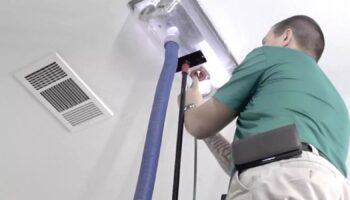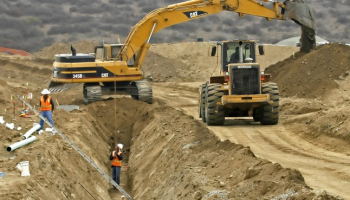Hardwood floor lasts very long and usually does not need to be replaced during the lifetime of a home. However, periodic refinishes help in maintaining its aesthetic appeal and keep up with the latest trends in flooring choices. Lot of homeowners take up refinishing and sanding floor as a do-it-yourself project.
A DIY project of sanding floor will help you save a considerable amount of money and give you more control over the project. However, it also comes with potential risks like permanent damage to the hardwood flooring, too much mess to deal with and a mishap like an injury. Professionals and amateurs both use similar tools for sanding and refinishing. The main tool required is a drum sander and it is used to sand the floor by running it back and forth on the floor. For those who like using powerful tools and machines, this will be a good experience. But for those who do not, the drum sander’s noise, discomfort of safety glasses and breathing mask can make the experience very uncomfortable.
Sanding floor – DIY vs hiring a professional
The quality of the job of sanding floor is different when a professional performs it vs when it is done by someone who is not an expert. The key differences between the two are:
- Sanding is a very difficult skill to learn. It takes years of practice for one to become an expert. When novices sand the floor, they are unable to do it properly. This is not the case of only a DIY project but also the result when sanding is done by contractors who do not specialize in hardwood flooring.
- If sanding is not done properly, the stain will not be able to penetrate the wood properly and hence the finish will be blotchy. The polyurethane will not properly adhere. Thus, a redo will be needed sooner (within 2 to 4 years as compared to the typical period of 7 to 10 years).
- For professionals, sanding floor is a job they do for a living and hence they are more adept at doing it. They can do the job sooner. A novice will typically need 2 to 4 time longer. So, if you are doing the sanding on your own, make sure you plan the schedule accordingly.
- When you sand the floor yourself, the job sometimes turns out to be messier. The professionals usually use machines that have a vacuum feature which sucks in all the dust.
- If you factor in the cost of equipment and consumables, then the saving is not a lot. If everything goes as per plan, you will be able to save about 40% of the cost. However, you will need to invest a lot more time.
What all do you need for sanding floor?
Sanding floor needs some powerful tools like drum sander, edger, radial sander, orbital sander and buffer. In addition, you will need a vacuum. It is advised that you rent this equipment if you are sanding the floor on your own, instead of investing in buying these tools. Then you will need consumables like sanding disks, stains and polyurethane. Additional materials that you will need are:
- Masks
- Safety goggles
- Knee pads
- Rubber shoes
- Rags and tools for application of stains
- Heavy duty garbage bags
- Work gloves
If you are new to sanding and refinishing of floors, it is best that you hire a professional service provider. The work will be done sooner, and it will be much more convenient for you. It is on you to compare and weight the small savings that you will be able to vis-à-vis the amount of time you will need to invest.






